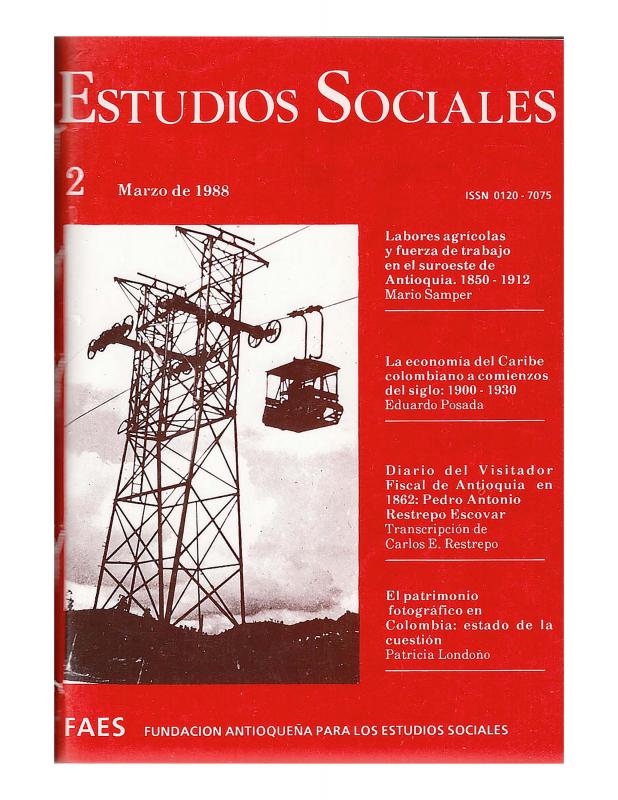In Colombia in the 1980s, the Banco de la República launched a program designed to preserve the country’s photographic heritage. This led to the publication of a number of documents, among them a book about Luís B. Ramos (1899-1955). The program stressed the testimonial nature of photography, especially as it contributed to the development of a “national identity.” The proposed documentation was to be guided by criteria that helped to explain the relationships between institutional, social, and artistic aspects of life, including the social, political, and economic functions and uses of projects of this nature (see: Patricia Londoño, El patrimonio fotográfico en Colombia: estado de la cuestión [Colombia’s Photographic Heritage: The State of the Matter], doc. #1100077).
The analysis of the relationship between art and society is yet another prism through which to consider the article by the artist and researcher Beatriz González (b. 1938). This article identifies a connection between a particular type of photography and the appearance of a variety of features that define a society as “modern.” After the 1930s, the western world established a cultural template concerning the social uses of photographic images. This trend has been expressed in ideas such as the masses, the people, and democracy, and is linked to the specific function of institutions such as nation states, the media, and civil organizations.
The body of work that Ramos created fits within this context. This artist-photographer’s photographs publicly acknowledge the “marginalized society” that was supposed to be part of the civilizing trend of the period. Ramos believed he was documenting a “real society” that had been around for some time. But his work played a part in developing and defining a new social order. This cultural phenomenon helps to explain why Ramos’ photography echoes the aesthetic canon that can be found in the images of great Latin American photographers such as the Peruvian Martín Chambi (1891–1973) and the Mexican Manuel Álvarez Bravo (1904-2002).

